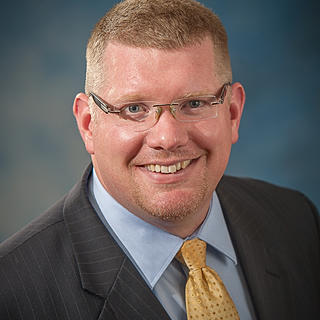Your Life Story...Your Legacy
- Chad A. Ritchie, Esq.
- Mar 15, 2022
- 5 min read
Updated: Jun 4

When I meet with my estate planning clients, we generally focus on how to properly pass their assets to the next generation; however, according to Estate Planning Surveys, passing down your family history and life story is considered more important to your family then just passing on your assets.
Creating a “Lasting Legacy” is more than just estate planning for your assets, it is also sharing your life stories, values and wisdom – your “Legacy Story” -- for future generations.
With this blog, I want to give you valuable tips on getting started with writing or recording your Legacy Story so you can share it with your family members and close friends.
NOTE: For more information on how to leave your Legacy Story – you can also register for my Free Webinar on this topic, which is included in Tab 1 of our new RLO Everything Book. CLICK HERE to learn more about the Webinar.

My Father’s Legacy Story
My Dad died over three years ago. The hardest thing to get used to after my father’s death was knowing that I couldn’t talk to him again.
Passing on your memoir and life story can be the most treasured gift to your loved ones.

My father was a farmer and also started his own painting business when I was in elementary school. I worked with my dad on the farm – walking beans, bailing hay and fixing machinery.
I also worked every summer with him, from fifth grade through college, painting houses, barns and machine sheds.
I learned a lot from my Dad – the importance of hard work, being honest and treating others with kindness. He always wore his work boots and pliers on his belt just in case. He was an All-State Football player back in the 1960s. He served in the army in Korea. He had a great singing voice and enjoyed singing in the choir.
I want my kids to know about their Grandpa Ritchie and what he was like. He died without writing down any of his life story or memoirs.
Fortunately, I did take some video of him over the years and was able to create this Video Memorial Tribute in honor of my father. This video has become one of my most treasured possessions, although I still wish my Dad had written his own Legacy Story.
Getting Started with Your Legacy Story
When it comes to telling your Legacy Story it can seem overwhelming and intimidating.
I have always had an interest in history and stories of the past. I was a history major at Illinois Wesleyan University, and also Chairman of the Mclean County Bar Association's History Subcommittee. I was also that “one person” in the family that often had a video camera recording during family events.
While I was Chairman of the History Subcommittee, we started interviewing the “Senior” attorneys of McLean County in order to preserve the history of practicing law in McLean County over the decades and to document the lives of the attorneys themselves.
While working on that project, I helped develop an outline for these attorney interviews that worked really well. I would learn so much more about an attorney’s life in just a 90-minute interview by following our outline than I learned “practicing law” with them for 10 years!
Below is an outline you can use as a guide to share your Legacy Story. First, I want to share some tips that I learned while working on the Mclean County Bar History Project and over the past 15+ years practicing estate law.
Writing Your Legacy Story Tips
Starting is the Key: Just getting started is the most important thing. Using the outline below helps getting started much easier. Just go through the questions on the outline and start talking about them. The outline is in chronological order – more or less – but you don’t have to go through it chronologically. Start on the topic that is easiest for you to talk about.
Write or Record: Your life story can be written with pen and paper; typed on a computer; or recorded in audio or video format. Just do whatever is the most comfortable for you! If you record yourself via audio or video – there are ways you can have those audio/videos transcribed later.
Perfection Not Needed: It doesn’t have to be perfect. Your audience is your family and friends – they don’t care if there are typos or misspellings – the important thing is to get those stories written or recorded. You can always go back and edit later. The most important thing is to get your stories and memories down!
Pick and Choose: You don’t have to cover everything on the outline. If there is a topic you are not comfortable talking about or doesn’t apply – then skip it.
Be Consistent: Set specific times during the day or week to work on your Legacy Story. It is recommended that you block at least 30 minutes of time for each session. I would recommend at least 3 sessions a week. The key is consistency!
Just Let Your Memories Flow: Most people were a little nervous when I started interviewing them during the attorney interview project but VERY SOON they got lost in telling their story, time stands still and before you know it 90 minutes have passed by. Again, just getting started is the key.
Words of Wisdom: My absolute favorite part of a Legacy Story is when people share their Words of Wisdom – lessons they have learned over their lifetime. Be sure to include those Words of Wisdom in your Life Story.
Everything Book: Having a place your loved ones can find your Legacy Story in the future is very important. For RLO Estate Planning Clients that have a Ritchie Law Office, Ltd. “Everything Book” – once you have written or recorded your Legacy Story – you should keep a copy of it in TAB 1 or your Everything Book!
Your Legacy Story Outline
Early Family History
Your name and when you were born? Stories of your birth.
Who were your parents and what did they do?
Who are your siblings?
Who were your grandparents?
What were your earliest childhood memories?
Stories of your parents; siblings; grandparents when you were a young Child?
What was school like for you growing up?
Adolescence
What was Middle School and High School like for you?
Friends
Activities/Sports/Work
Highs and Lows
Did your family move when you were growing up?
Family Vacations?
Young Adulthood
College
Career
Military Service
Courtship
Marriage
Middle Adulthood
The Birth of Your Children
Milestones for Your Children
Funny Stories
Challenges/Joys/Lessons of being a parent
Older Adulthood
Retirement
Being a Grandparent
Miscellaneous Topics
Important Dates in your Life
Recognitions/Awards
Failures
Successes
Turning Points
Hobbies
Friends/Family
Values
Religion/Spirituality
Charities
Vacations
Life Goals/Bucket List
Money
Pets
Words of Wisdom
What are the most important life lessons that you have learned during your life?
What do you wish you could go back and tell your twenty-something self?
Besides getting married and the birth of your children – what are the top 5 events of your life.
Anything Else?
Conclusion
I hope these tips and outline are helpful to you as you document your life stories, values and words of wisdom. Good luck with your Legacy Story!
NOTE: For more information on how to leave your Legacy Story – you can also register for my Free Webinar on this topic. CLICK HERE for more details.
This article is a service of Attorney Chad A. Ritchie and the Ritchie Law Office, Ltd.
Click Here or call (309) 662-7000 to learn more about Ritchie Law Office, Ltd. and our Estate Planning process, which starts with an initial consultation called our “Ritchie Legacy Planning Session”.
To sign up for the Ritchie Law Office, Ltd. monthly newsletter, click here! Keep up with estate planning news, federal and state legislation affecting your estate plans, and the latest events and happenings at Ritchie Law Office, Ltd.
.jpg)







